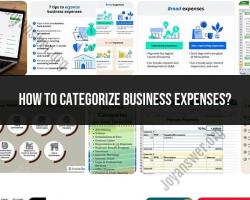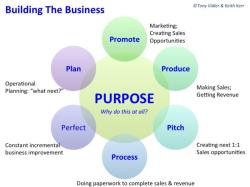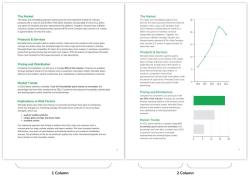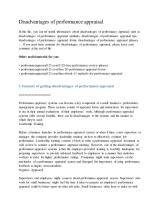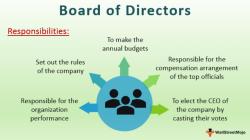How to track business expenses for small business?
Tracking business expenses is crucial for small businesses to manage finances, maintain accurate records, and make informed financial decisions. Here are strategies and methods for tracking business expenses effectively:
1. Establish a System:
- Set up a dedicated system for tracking expenses. This can include using accounting software, spreadsheets, or specialized expense tracking apps. Choose a system that aligns with your business size and needs.
2. Use Accounting Software:
- Invest in accounting software designed for small businesses. Popular options include QuickBooks, Xero, and FreshBooks. These tools often automate expense tracking, generate reports, and streamline financial management.
3. Maintain Receipts:
- Keep all receipts related to business expenses. This includes physical receipts, digital copies, or scanned versions. Organize them by category to simplify the tracking process.
4. Categorize Expenses:
- Establish a consistent and detailed system for categorizing expenses. Common categories include office supplies, utilities, travel, meals, and marketing. Consistent categorization makes it easier to analyze spending patterns.
5. Regularly Reconcile Accounts:
- Reconcile your business bank and credit card statements regularly. Ensure that transactions in your accounting system match those on your bank statements. This helps identify discrepancies or errors promptly.
6. Set Expense Policies:
- Establish clear expense policies for your business. Define what expenses are reimbursable, set spending limits, and communicate these policies to employees. Having guidelines helps prevent overspending and ensures consistency.
7. Use Business Credit Cards:
- Use business credit cards for business expenses. This simplifies tracking and separates personal and business expenses. Many credit cards provide itemized statements and offer rewards or cashback on business-related purchases.
8. Automate Expense Entry:
- Leverage automation features in accounting software to streamline data entry. Many tools allow you to connect bank accounts and credit cards, automatically importing transactions and reducing manual data entry.
9. Mobile Apps for Receipt Scanning:
- Use mobile apps that allow you to scan and digitize receipts on the go. These apps often integrate with accounting software, making it easy to capture expenses in real-time.
10. Regular Financial Reviews:
- Schedule regular reviews of your financial statements. Analyze expense reports to identify trends, spot irregularities, and make informed decisions about cost-cutting or budget adjustments.
11. Hire a Professional:
- Consider hiring an accountant or bookkeeper to manage your business finances. A professional can provide expertise, ensure compliance with tax regulations, and offer valuable insights into financial management.
12. Employee Training:
- Train employees on expense reporting procedures. Educate them on the importance of accurate and timely reporting, and provide clear instructions on submitting expenses.
13. Backup Documentation:
- Keep backup documentation for all expenses, including invoices, contracts, and any supporting documents. This is crucial for audits and ensures compliance with tax regulations.
14. Regularly Update Financial Records:
- Stay proactive in updating financial records. Avoid letting receipts pile up or delaying expense entry. Regular updates help maintain accuracy and make financial reporting more efficient.
15. Tax Compliance:
- Stay informed about tax regulations and compliance requirements related to business expenses. Proper documentation and adherence to tax rules can help optimize deductions and prevent issues during audits.
By implementing these strategies, small businesses can establish efficient and organized processes for tracking expenses, leading to better financial management and decision-making.
Sure, here are the steps for establishing a system for organizing and recording business expenses, utilizing accounting software and expense tracking tools, and maintaining accurate records for tax preparation and compliance:
Establishing a System for Organizing and Recording Business Expenses
- Separate Business from Personal Finances: Establish dedicated business bank accounts and credit cards to segregate business expenses from personal transactions. This simplifies expense tracking and avoids commingling funds.
- Gather Receipts and Documentation: Collect receipts, invoices, and other supporting documents for all business expenses. These documents serve as evidence of expenses incurred and are essential for tax purposes.
- Categorize Expenses: Classify expenses into meaningful categories, such as rent, utilities, supplies, travel, and marketing. Categorization facilitates analysis and budgeting.
- Choose a Recordkeeping Method: Select a method that suits your business needs and preferences. Options include manual spreadsheets, accounting software, or cloud-based expense tracking tools.
- Record Expenses Regularly: Establish a regular schedule for recording expenses. Ideally, enter expenses as they occur or at least weekly to maintain accuracy and prevent accumulation.
- Reconcile Bank Statements: Regularly reconcile bank statements with your expense records to identify and rectify any discrepancies.
- Review and Analyze Expenses: Periodically review expense records to identify trends, monitor spending patterns, and make informed financial decisions.
Utilizing Accounting Software and Expense Tracking Tools
Accounting software and expense tracking tools offer automated solutions for managing business expenses. These tools streamline recordkeeping, provide comprehensive expense reports, and enhance financial visibility.
- Accounting Software: Accounting software offers a comprehensive solution for managing finances, including expense tracking, invoicing, and financial reporting. Popular options include QuickBooks, Xero, and FreshBooks.
- Expense Tracking Tools: Expense tracking tools focus specifically on recording, categorizing, and analyzing expenses. They often integrate with accounting software for a more streamlined workflow. Popular options include Expensify, Zoho Expense, and Shoeboxed.
Maintaining Accurate Records for Tax Preparation and Compliance
Accurate expense records are essential for tax preparation and ensuring compliance with tax regulations. Proper recordkeeping simplifies tax filing, reduces the risk of errors, and facilitates audits.
- Retain Receipts and Documentation: Maintain organized files of receipts, invoices, and other supporting documents for at least seven years after tax filing.
- Verify Expense Accuracy: Cross-check expense records with bank statements and other sources to ensure accuracy and completeness.
- Seek Professional Guidance: Consult with a tax advisor for assistance with complex tax matters and to ensure compliance with tax regulations.
- Utilize Tax Preparation Software: Employ tax preparation software to simplify the tax filing process and minimize errors.
- File Taxes Timely: Submit tax returns accurately and on time to avoid penalties and interest charges.
By following these steps, you can ensure that your business expenses are organized, recorded, and maintained accurately for tax preparation and compliance purposes.







